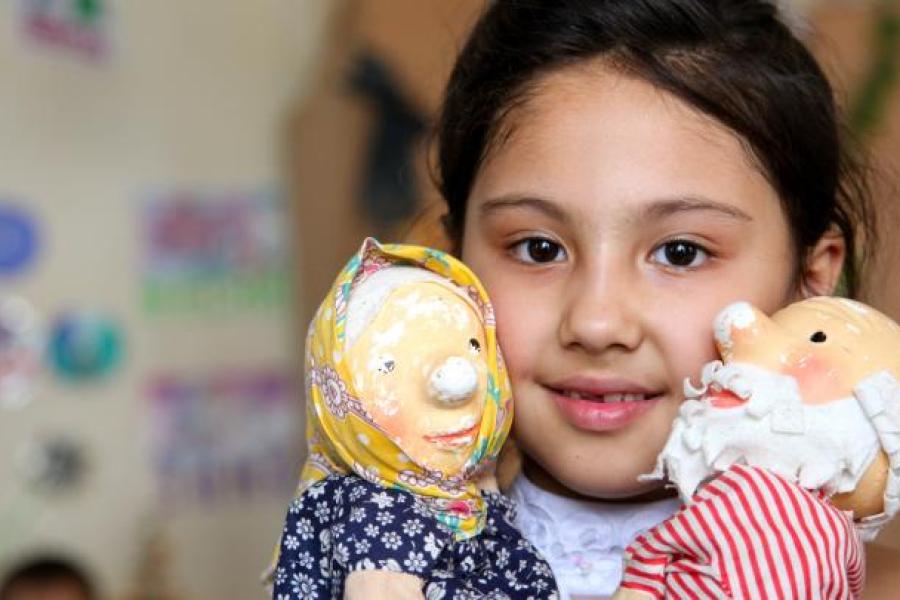Partnerships Towards Achieving Universal Early Childhood Education in Uzbekistan
15 November 2022
On the sidelines of the World Conference on Early Childhood Care and Education (WCECCE) in Tashkent, the Ministry of Preschool Education of Uzbekistan (MoPSE), United Nations Children’s Fund (UNICEF), and World Bank (WB) are discussing lessons learned and further steps on how working in partnership can support Uzbekistan’s reform for Early Childhood Care and Education (ECCE).

“We expect that the conference will help increase investment in children under eight years of age, as well as set new benchmarks in their upbringing and education in a number of priority areas. Its main outcome should be the adoption of the Tashkent Declaration, which will outline the strategy for the development of preschool education in the world for the next decade,” said Agrippina Shin, Minister of Preschool Education.
The discussion follows significant progress recorded on Uzbekistan’s Early Childhood Education Agenda, which has seen a staggering increase in enrolment with the number of children (3-6 years) accessing ECE services increasing from 634,000 in 2015 to almost 2 million by 2022 – equivalent to over 39% increase of the national coverage in 5 years since the establishment of MoPSE.
The side-event, which is titled Partnerships Towards Achieving Universal Early Childhood Education in Uzbekistan, recognized the critical levers for Early Childhood Education Reform in Uzbekistan as decisive action at political level to drive reform backed by the allocation of additional resources and partnerships. Further, active involvement of private sector through public private partnership, innovative approaches and partnerships between government, UNICEF and World Bank have been highly influential enablers of a sustainable reform agenda.
The side event acknowledges that despite tremendous progress made, many children still need support in order to access early childhood learning before five years. According to the Multiple Indicator Cluster Survey (2022) data, there are still equity issues related to disparities in attendance in ECE (3-4 years old) by gender (51% male and 41% female), urban 51% and rural 42%, and wealth quintile of households with 55% richest and 29% poorest.
UNICEF is advocating for a focus on transformative interventions to reach the last mile, which is often the biggest challenge for national education systems through the following:
- Policy planning, monitoring and coordination
- Enhancing access through flexible service provision
- Working on quality of ECCE programmes
- Introducing innovation and technology
“Uzbekistan tops global ranking of enrollment dynamics in preschool education which was possible due to the political will and smart investments backed by the science and economics, which are clearly on the side of entrusting resources into early childhood,” said Munir Mammadzade, UNICEF Representative in Uzbekistan. “Nonetheless, the agenda is incomplete, and we now know what works and the gaps, including on quality and inclusion, so let us galvanize the partners required to reach the last mile.”
“The World Bank welcomes the progress Uzbekistan has achieved since 2017 in expanding access to preschool education. With a young and rapidly growing population, the government should continue and accelerate its efforts to invest in early childhood education to help develop the emotional, social, and cognitive skills that children need to become lifelong to become lifelong learners,” noted Marco Mantovanelli, World Bank Country Manager for Uzbekistan. “A Bank-funded project (around US$ 74 million) is supporting the MoPSE in expanding access and improving the learning environment in urban and rural preschools. In partnership with the government and other international donors, these efforts will further increase children’s chances of a good start in their early years as a critical foundation for improved learning and productive lives in the future. The World Bank will continue to support Uzbekistan in implementing further educational reforms and investments under a new Country Partnership Framework for FY2022-2026.”


